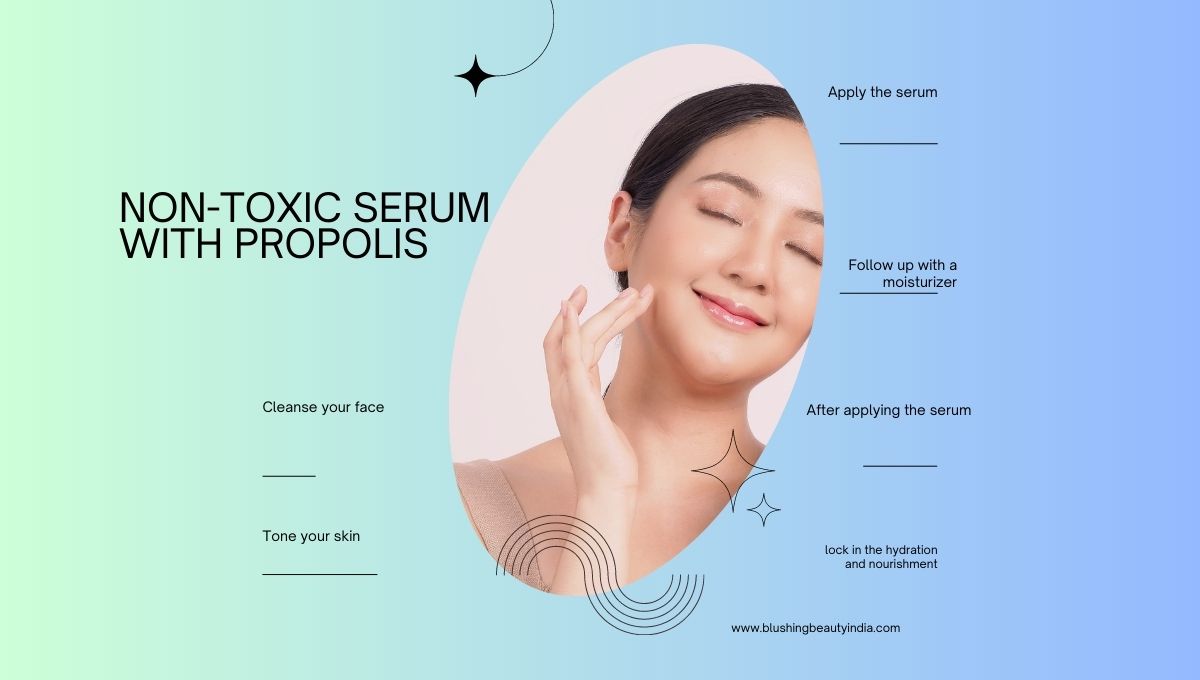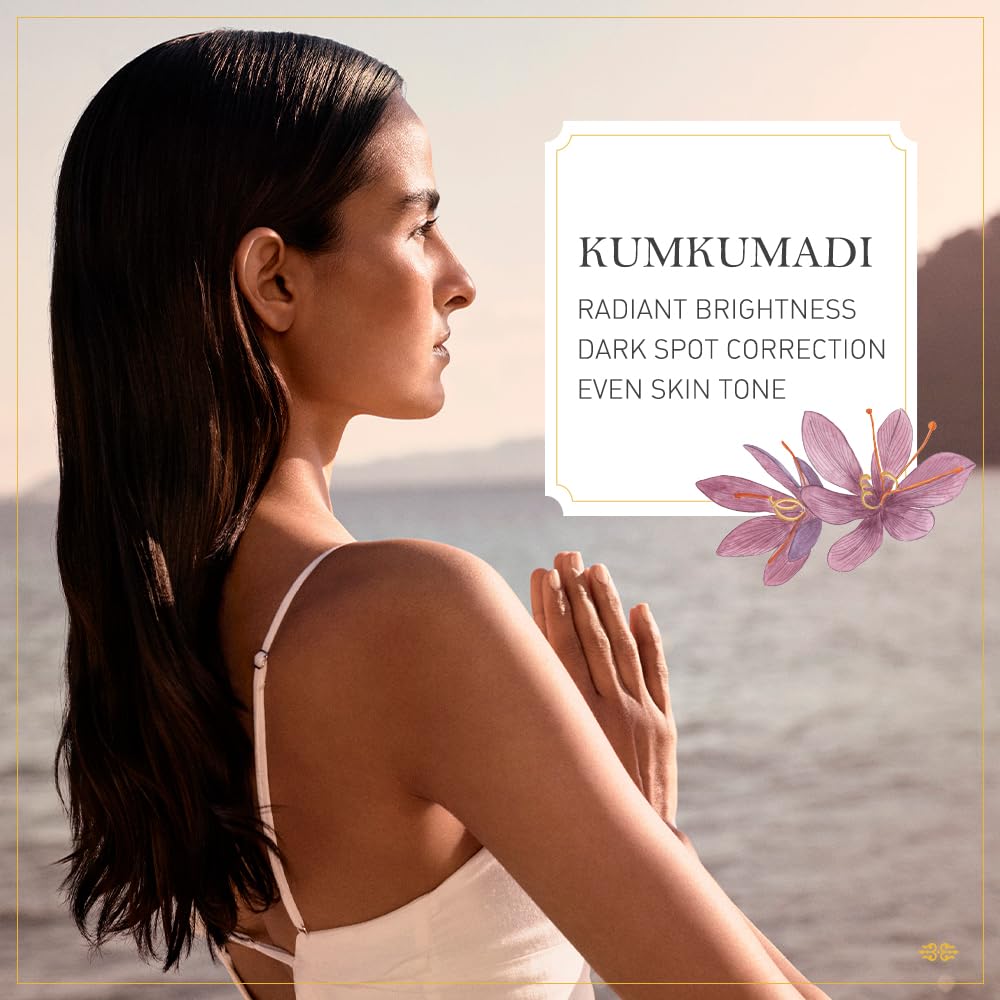Non-toxic serum with propolis and niacinamide are two powerful ingredients that can provide numerous benefits for the skin when used together in a serum. Here are some of the benefits of using a serum with propolis and niacinamide:
Soothes and calms the skin: Propolis is a natural anti-inflammatory agent that can help soothe and calm irritated or inflamed skin. This can be particularly helpful for those with sensitive or acne-prone skin.
Hydrates the skin: Niacinamide is a form of vitamin B3 that is known to improve the skin’s moisture content and reduce transepidermal water loss. This can help keep the skin hydrated and plump.
Brightens and evens out skin tone: Niacinamide is also known to reduce hyperpigmentation and uneven skin tone, making the skin appear brighter and more even.
Protects against environmental damage: Propolis contains antioxidants that can help protect the skin from environmental damage caused by factors such as pollution and UV radiation.
Boosts collagen production: Niacinamide has been shown to boost collagen production in the skin, which can help reduce the appearance of fine lines and wrinkles.
In addition to these benefits, a serum containing propolis and niacinamide is also non-toxic and safe for use on most skin types. Propolis is a natural substance that is derived from bees and is generally considered safe for topical use. Niacinamide is a water-soluble vitamin that is also considered safe for use in skincare products.
Overall, a serum containing propolis and niacinamide can provide a wide range of benefits for the skin while being non-toxic and safe for use on most skin types.
What is Propolis?
- Propolis and niacinamide are two powerful ingredients that can provide numerous benefits for the skin when used together in a serum. Here are some of the benefits of using a serum with propolis and niacinamide:
- Soothes and calms the skin: Propolis is a natural anti-inflammatory agent that can help soothe and calm irritated or inflamed skin. This can be particularly helpful for those with sensitive or acne-prone skin.
- Hydrates the skin: Niacinamide is a form of vitamin B3 that is known to improve the skin’s moisture content and reduce transepidermal water loss. This can help keep the skin hydrated and plump.
- Brightens and evens out skin tone: Niacinamide is also known to reduce hyperpigmentation and uneven skin tone, making the skin appear brighter and more even.
- Protects against environmental damage: Propolis contains antioxidants that can help protect the skin from environmental damage caused by factors such as pollution and UV radiation.
- Boosts collagen production: Niacinamide has been shown to boost collagen production in the skin, which can help reduce the appearance of fine lines and wrinkles.
- In addition to these benefits, a serum containing propolis and niacinamide is also non-toxic and safe for use on most skin types.
- Propolis is a natural substance that is derived from bees and is generally considered safe for topical use. Niacinamide is a water-soluble vitamin that is also considered safe for use in skincare products.
- Overall, a serum containing propolis and niacinamide can provide a wide range of benefits for the skin while being non-toxic and safe for use on most skin types.
What is Niacinamide?
- Niacinamide, also known as nicotinamide, is a form of vitamin B3 that is water-soluble and commonly used in skincare products. It is a key ingredient in many skincare formulations because of its numerous skin benefits.
- Niacinamide is beneficial for the skin because it helps to improve the skin’s texture and appearance by reducing the appearance of fine lines, wrinkles, and hyperpigmentation. It is also helpful for reducing inflammation and redness and improving skin elasticity.
- Niacinamide has been shown to help regulate sebum production, making it an excellent ingredient for those with oily or acne-prone skin. Additionally, niacinamide has been shown to have antioxidant properties, which help to protect the skin from environmental stressors such as pollution and UV radiation.
- Niacinamide can be sourced from a variety of natural sources, including yeast, meat, fish, and green vegetables. It can also be produced synthetically in a laboratory. In skincare products, niacinamide is typically processed and purified to ensure that it is free from impurities and contaminants.
- It can be found in various skincare products, including cleansers, toners, serums, and moisturizers. Niacinamide is generally well-tolerated by most skin types and is considered a safe and effective ingredient for improving the overall health and appearance of the skin.
Benefits of Using a Serum with Propolis and Niacinamide
- Niacinamide, also known as nicotinamide, is a form of vitamin B3 that is water-soluble and commonly used in skincare products. It is a key ingredient in many skincare formulations because of its numerous skin benefits.
- Niacinamide is beneficial for the skin because it helps to improve the skin’s texture and appearance by reducing the appearance of fine lines, wrinkles, and hyperpigmentation. It is also helpful for reducing inflammation and redness and improving skin elasticity.
- Niacinamide has been shown to help regulate sebum production, making it an excellent ingredient for those with oily or acne-prone skin. Additionally, niacinamide has been shown to have antioxidant properties, which help to protect the skin from environmental stressors such as pollution and UV radiation.
- Niacinamide can be sourced from a variety of natural sources, including yeast, meat, fish, and green vegetables. It can also be produced synthetically in a laboratory. In skincare products, niacinamide is typically processed and purified to ensure that it is free from impurities and contaminants.
- It can be found in various skincare products, including cleansers, toners, serums, and moisturizers. Niacinamide is generally well-tolerated by most skin types and is considered a safe and effective ingredient for improving the overall health and appearance of the skin.
How to Use a Face Serum
Who Can Use a Serum with Propolis and Niacinamide?
- Without knowing specifically which serum you are referring to, I will provide a general explanation of how serums can be formulated to be suitable for all skin types, including sensitive skin.
- Firstly, serums are typically designed to be lightweight and fast-absorbing, which makes them less likely to clog pores or cause irritation. They also contain a high concentration of active ingredients, which can target specific skin concerns such as fine lines, wrinkles, hyperpigmentation, and acne.
- To make a serum suitable for all skin types, including sensitive skin, formulators may choose to use ingredients that are known to be gentle and non-irritating, such as hyaluronic acid, aloe vera, chamomile, and green tea extract. These ingredients have soothing and hydrating properties that can help to calm inflammation and irritation in the skin.
- Additionally, the serum may be formulated without common irritants such as fragrances, alcohol, and synthetic preservatives. This can further reduce the risk of allergic reactions or skin sensitivities.
- The non-toxic nature of the serum also makes it safe for all users, regardless of skin type. To ensure the safety of the serum, formulators may choose to use natural, organic, or plant-based ingredients that are free from harmful chemicals, such as parabens, sulfates, and phthalates. These ingredients are less likely to cause irritation or other adverse reactions, making the serum safe and effective for a wide range of users.
- Overall, by carefully selecting gentle and non-toxic ingredients, formulators can create serums that are suitable for all skin types, including sensitive skin, without compromising on effectiveness or safety.
How to Use a Serum with Propolis and Niacinamide
- Serums are lightweight skincare products that can provide a concentrated dose of active ingredients to help address specific skin concerns. Here are some steps on how to incorporate a serum into your skincare routine:
- Cleanse your face: Start by cleansing your face to remove any dirt, oil, or makeup. Use a gentle cleanser that suits your skin type.
- Tone your skin: After cleansing, use a toner to balance your skin’s pH levels and prep your skin to absorb the serum more effectively.
- Apply the serum: Dispense a small amount of serum onto your fingertips and gently pat it onto your skin. You can use it all over your face or focus on specific areas that need attention. Avoid the eye area.
- Follow up with a moisturizer: After applying the serum, wait a few minutes for it to absorb and then apply a moisturizer to lock in the hydration and nourishment from the serum.
- As for the frequency of use, it depends on the ingredients and your skin type. Generally, serums can be used once or twice a day, in the morning and/or at night. If you have sensitive skin or if the serum is particularly potent, you may want to start by using it every other day or every few days, and gradually increase the frequency if your skin tolerates it.
- When it comes to the amount of serum to apply, a little goes a long way. Start with a small amount, such as a pea-sized drop, and gently massage it into your skin until it is fully absorbed. You can always add more if needed, but using too much may leave your skin feeling greasy or sticky.
Conclusion
Propolis has antibacterial and anti-inflammatory properties, making it beneficial for acne-prone skin.
Niacinamide can help reduce inflammation and redness, as well as improve skin texture and even out skin tone.
Together, propolis and niacinamide can help soothe and calm irritated skin, while also providing hydration and nourishment.
Using a serum with these ingredients can also help protect the skin from environmental stressors and premature ageing.
As for the importance of using non-toxic skincare products, it’s crucial to prioritize products that are safe and beneficial for both our skin and overall health.
Many conventional skincare products contain potentially harmful chemicals, such as parabens and sulfates, which can be absorbed into our bloodstream and have negative effects on our bodies.
By using non-toxic skincare products, we can ensure that we’re not exposing ourselves to unnecessary risks and can support our skin’s natural health and radiance.
You Might Also Like- 10 Best Vitamin C Serums For Acne-Prone Skin




